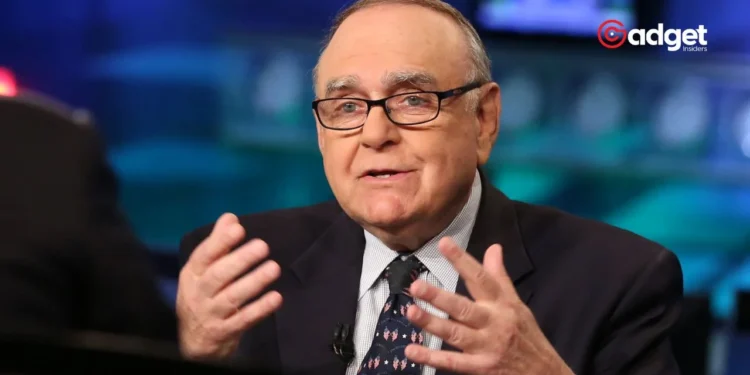In recent discussions that captured the attention of many in the ongoing financial crisis, billionaire investor Leon Cooperman has voiced serious concerns about the trajectory of the U.S. economy due to escalating national debt levels. His critique isn’t just a fleeting comment but a dire warning about the potential for an upcoming financial crisis.
With his deep understanding of market dynamics and decades of investment experience, Cooperman’s insights carry considerable weight in economic circles.

Critiquing the Fed: A Decade of Decisions
Cooperman’s critique extends beyond general fiscal policy, directly targeting the Federal Reserve’s recent actions. After maintaining interest rates at near-zero for more than a decade—a policy aimed at stimulating economic growth post-2008 financial crisis—the Fed made an abrupt pivot.
Over the past year, interest rates have seen a sharp increase, rising by over 500 basis points. Cooperman assigned a “low grade” to the Fed for what he perceives as a sudden and perhaps overly aggressive adjustment.
The US is headed for a financial crisis because of soaring national debt, billionaire investor Leon Cooperman says https://t.co/PXzhmwUsoO
— Business Insider (@BusinessInsider) April 24, 2024
The Investor’s Take on Rate Adjustments and Market Speculation
“The markets are currently overvalued, and investors should brace for a steep decline,” Cooperman commented during a CNBC interview. This bearish outlook stems from his observation of heightened market speculation driving stock values to unprecedented heights.
Despite these market trends, Cooperman points out that there are no clear indicators from the economy that justify the Fed’s restrictive stance, even as there’s chatter about potential rate cuts on the horizon.

Leadership and Debt: A Call for Action
A significant part of Cooperman’s concern revolves around what he describes as a leadership crisis in the United States, criticizing the lack of significant action following the recommendations from the 2010 Simpson-Bowles Commission.
Initiated under President Barack Obama, the commission proposed various long-term strategies aimed at curtailing the national debt, yet few have been implemented. “Deficits matter,” Cooperman stressed, indicating that the ignored advice of past economic experts and leaders might lead us into troubled waters.

A Looming Financial Crisis?
Drawing from his extensive experience and historical knowledge, Cooperman sees these fiscal and policy missteps as precursors to a more severe economic downturn. His warning is not just about potential market corrections but a broader financial crisis spurred by unchecked national debt and inadequate fiscal stewardship.
In essence, Cooperman’s admonitions serve as a clarion call to investors and policymakers alike, urging them to heed the lessons of past economic turmoil and to reevaluate current strategies.
Whether his predictions will materialize remains to be seen, but his analysis offers a critical perspective that merits serious consideration as the U.S. navigates its economic future.










